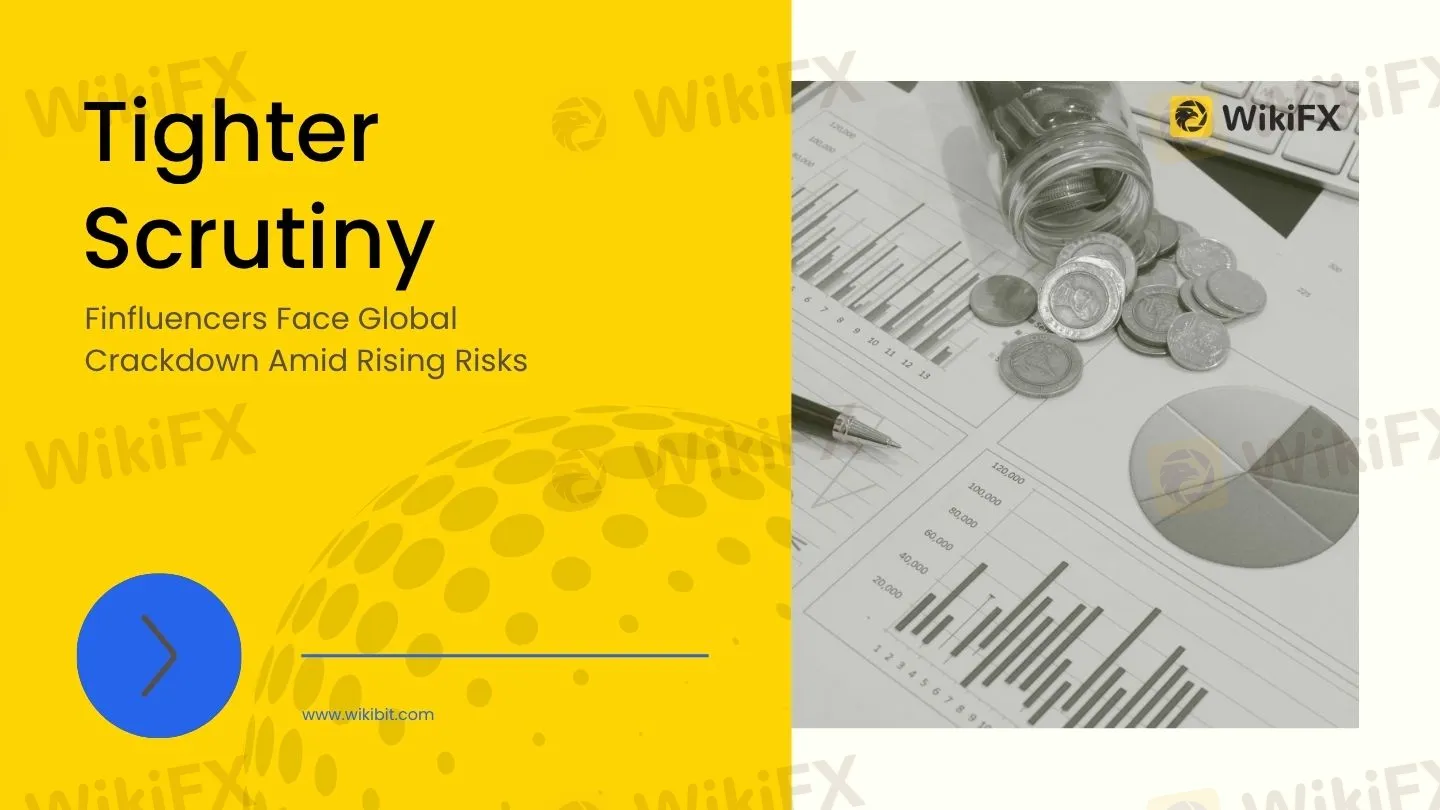简体中文
繁體中文
English
Pусский
日本語
ภาษาไทย
Tiếng Việt
Bahasa Indonesia
Español
हिन्दी
Filippiiniläinen
Français
Deutsch
Português
Türkçe
한국어
العربية
Tighter Scrutiny: Finfluencers Face Global Crackdown Amid Rising Risks
Abstract:The UK’s Financial Conduct Authority (FCA), in collaboration with eight global regulators, has taken strong enforcement actions against unauthorised finfluencers. The move signals a broader regulatory shift toward stricter oversight of financial promotions on social media.

Finfluencers Under the Regulatory Microscope
Finfluencers—social media personalities offering financial insights or promoting investment products—have become influential voices for retail traders. However, regulators are now stepping in to curb misleading content and unauthorised financial promotions that have proliferated on platforms like Instagram, YouTube, and TikTok.
In a recent coordinated enforcement campaign, the FCA launched criminal proceedings against three individuals, arrested three others, issued seven cease-and-desist letters, and published 50 warning alerts. These actions have resulted in over 650 takedown requests across various platforms and action against more than 50 websites.
A Global Effort to Protect Retail Investors
The UKs initiative is part of a wider “Global Week of Action” involving regulators from Australia, Canada, Hong Kong, Italy, and the UAE. Together, these authorities aim to protect retail investors from unauthorized financial advice and false advertising spread via social media.
“Finfluencers must act responsibly and only promote financial products where they are authorised to do so—or face the consequences,” said Steve Smart, Executive Director of Enforcement and Market Oversight at the FCA.
From Lavish Lifestyles to Legal Trouble
While many finfluencers operate within legal boundaries, some promote products by flaunting luxury lifestyles and promising unrealistic returns—often without the necessary financial licenses. These tactics mislead audiences into risky investments, blurring the line between marketing and financial advice.
A study by CMC Markets found that 33% of traders are more likely to follow a trade recommended by a social media influencer, making regulatory oversight more critical than ever.
Will Licensing Become the Norm?
While the UAE has already introduced mandatory licenses for financial content creators, the UK has not yet taken that step. However, the FCAs enforcement actions indicate that regulation-by-enforcement is intensifying, and a formal licensing framework could be on the horizon.
For now, finfluencers operating without proper authorization are on notice—and investors are reminded to verify the legitimacy of any financial guidance they consume online.
Disclaimer:
The views in this article only represent the author's personal views, and do not constitute investment advice on this platform. This platform does not guarantee the accuracy, completeness and timeliness of the information in the article, and will not be liable for any loss caused by the use of or reliance on the information in the article.
Read more

WeTrade Review: Why Traders Are Choosing WeTrade in 2025?
With so many trading platforms available today, traders have every reason to be careful—and staying scam alert is more important than ever. However, WeTrade has managed to earn a positive reputation for the right reasons. Know the Reasons right away

Is Forex Trading Halal or Haram? What Do Scholars Say?
For Islamic traders and investors, one of the most relevant and frequently asked questions is whether forex trading is halal (permissible) or haram (forbidden) in Islam? In this article, we will explore both sides of the debate. Keep reading to uncover the truth and make Informed & Faith-conscious decisions about your investments.

Fraud Alert: 5 Issues You Might Face with Binomo
Binomo is a fake broker that pretends to be genuine. It makes unrealistic claims to lure traders into their trap. Before you fall victim to this scam, we’re here to issue a fraud alert and expose the five red flags you need to watch out for.

Doctor Trapped by 520% Profit Promise, Loses RM8.7 Million
A 53-year-old doctor in Malaysia has lost her entire life savings of RM8.7 million after falling prey to a sophisticated online investment scam that promised massive returns from stock trading.
WikiFX Broker
Latest News
PayPal reports slow growth in key margin figure even as earnings top estimates
5 Best Forex Brokers in Singapore for 2025
Trump's tariffs could soon bring higher food prices for some Americans, analysis finds
iFourX: So Many Red Flags You Can’t Ignore
Tom Lee's Granny Shots ETF rakes in $2 billion in AUM just 9 months after inception
Starbucks same-store sales fall again, but CEO Niccol says turnaround is ahead of schedule
Singapore holds monetary policy, flags slowdown in second half of the year
Top Forex Chart Patterns Every Trader Must Know
Adidas to raise prices as US tariffs cost €200m
Top 4 Forex Scam Tactics Fake Brokers Use to Trap Investors
Currency Calculator


